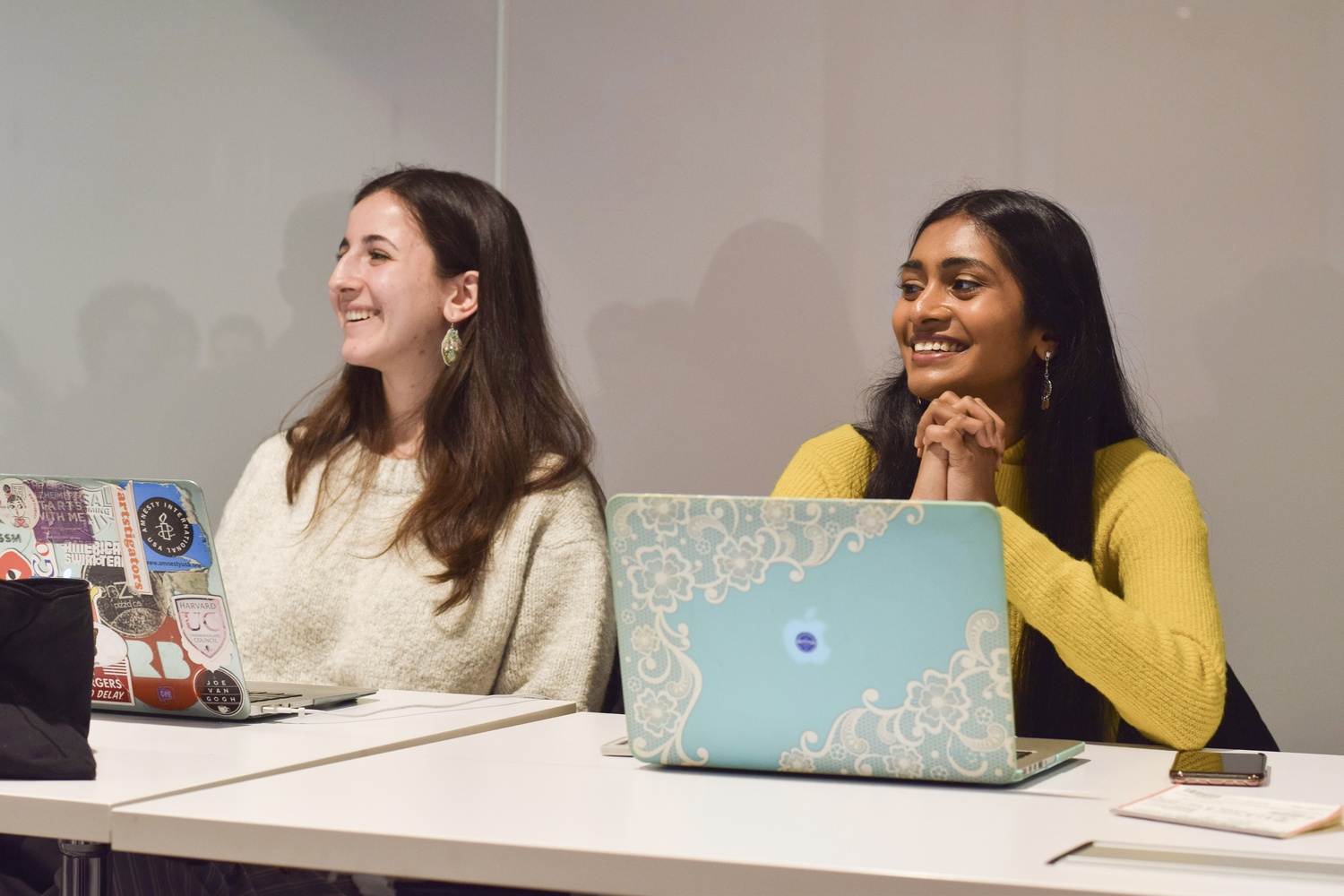
News
Progressive Labor Party Organizes Solidarity March With Harvard Yard Encampment

News
Encampment Protesters Briefly Raise 3 Palestinian Flags Over Harvard Yard

News
Mayor Wu Cancels Harvard Event After Affinity Groups Withdraw Over Emerson Encampment Police Response

News
Harvard Yard To Remain Indefinitely Closed Amid Encampment

News
HUPD Chief Says Harvard Yard Encampment is Peaceful, Defends Students’ Right to Protest
UC Modifies Voting and Attendance Procedures

The Undergraduate Council voted to modify its attendance requirements for representatives at its general meeting Sunday.
UC President Sruthi Palaniappan ’20, Vice President Julia M. Huesa ’20, and Secretary Cade S. Palmer ’20, who is also a former Crimson Sports Chair, proposed legislation that automatically categorizes certain absences from UC meetings as excused. Previously, if representatives missed three UC meetings, they were required to meet with the UC’s executive board for an “attendance review.”
“It’s basically a problem solving session where we touch base,” Huesa said of attendance reviews. “It’s just to understand why you might be missing meetings.”
Under the new system, absences due to conflicts such as academic and medical commitments will automatically be considered excused, and the UC secretary will be allowed to excuse other absences at his or her discretion. Three unexcused absences will lead to an attendance review.
The legislation was prompted by a large number of attendance reviews in the past week that the executive board had to conduct due to absences, according to Palaniappan. Under the new system, most of those absences would be considered as excused.
The UC also accepted an amendment to the legislation that considers absences from rescheduled UC meetings as excused.
The overall legislation passed 24-0-5.
The Council also considered an amendment proposed by Elm Yard Representative Rachel L. Reynolds ’22, which would limit the amount of time that representatives have to comment on their vote after the fact to one minute.
In the parliamentary procedure that the UC follows, representatives can declare their votes “with rights” during roll call vote, which gives them time to explain their votes after voting concludes.
Though most other speeches during the Council’s meetings are timed, representatives are currently allowed unlimited time to talk during a “with rights” speech.
Reynolds, who is responsible for keeping time during the meetings as the Council’s parliamentarian, said she proposed the legislation to make meetings more efficient.
Some representatives said they feel “with rights” speeches are important, especially because UC members are allowed to change their votes on legislation up to a week after the initial vote.
“I think that what's really important about ‘with rights’ speeches is in the cases of when 95 percent of us move one way, that 5 percent has the opportunity to say something that can be drowned out,” said Sung Kwang Oh ’21, a Crimson Multimedia editor.
The amendment initially passed.
Immediately after, however, several representatives gave “with rights” speeches, changing enough votes that the “with rights” proposal ultimately failed.
— Staff writer Kevin R. Chen can be reached at kevin.chen@thecrimson.com.
Want to keep up with breaking news? Subscribe to our email newsletter.
